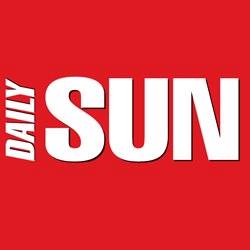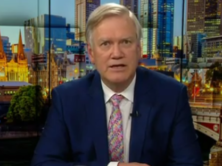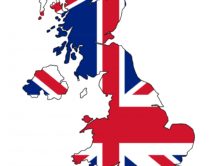
South Africa's Daily Sun (Credit: Facebook(
The South African Daily Sun must apologize and retract an article claiming, based on anonymous sources, that a church hosted orgies and leaders sexually harassed congregants. The article was anonymously sourced hearsay and problematic, the country’s press ombudsman ruled.
“I have said umpteen times that a publication is not justified to publish an allegation just because someone has made it – there has to be some possibility that the allegation is, or could be, reasonably true,” the South African press ombudsman Johan Retief reminded. “There should be some form of verification. If, for example, someone slanders a person (i.e. makes an untrue statement that significantly lowers that person’s reputation and that is not in the public interest – I shall shortly return to this matter), the publication of such a statement would also be defamatory.”
Retief argued the “flickering lights should have turned to orange” when the Sun reviewed the article before publication. iMediaEthics has written to the Sun and tweeted the accused church leader Shepherd Bushiri’s representative.
The Sun‘s Feb. 2019 front page article was headlined “Sex claims rock Bushiri church! ‘Luxury hotels used for sexual encounters'” and “At least four women claim abuse.” It claimed four women alleged Bushiri sexually harassed them.
Bushiri’s representative, Makhudu Sefara, told iMediaEthics he thought the Sun was “reckless in the extreme.”
“It was not a case of systems failure or ethical lapse at the newspaper – there just were no systems at all. The errors committed by Daily Sun were basic and should have been picked up, even by inexperienced journalists! It is either the people who placed the story on page 1 had willed themselves to cause Prophet Bushiri harm or had no inkling what it means to edit a newspaper,” he e-mailed iMediaEthics.
Sefara continued:
“This is an indictment on a sector that is supposed to be the primary sense-maker of information in society, especially now in the age of fake news and misinformation! Of course the ECG church and its leadership accepts criticism where such is due, but also expects journalists to do journalism – i.e. – establish the veracity of the facts on which their news stories rely! That’s what is supposed to distinguish information from newspapers to what is circulated through untraceable Twitter Accounts. What Daily Sun did is un-journalism, so to speak!”
Shepherd Bushiri, who leads the Enlightened Christian Gathering (ECG) Church, called the article defamatory and was upset about the claims the church was “one big bedroom” and hotels were “centres for sexual encounters and sickening orgies.” His representative challenged the newspaper to provide any evidence to support its allegations, such as who took part, and when and where the alleged orgies took place.
In response, the Daily Sun said it got a media statement from the organization #NotinmynameSA and interviewed its secretary Themba Masango. Masango was the one who told the Sun the claims of “one big bedroom” and allegations of sexual harassment and orgies. But, the Sun never even talked to the women in question, instead relying on Masango’s account of their allegations. To that, the ombudsman said the Sun should have had a “red light” warning before reporting further.
The Sun stood by its reporting as in the public interest and said it contacted the church’s spokesperson who said “we are not aware of this.”
The South African press ombudsman, however, slammed the Sun‘s reporting. “Let me state, in general, that the more serious an allegation, the greater the possibility of causing unnecessary harm – and therefore the more wary the media should be in publishing such a statement,” he cautioned. Retief asked why the Sun reported on anonymous claims made second hand and asked why the organization #NotinMyNameSA didn’t contact the church to raise concerns before going to the media.
“Yes, the newspaper wanted to interview [the accusers]. The fact that it was prohibited from doing so, should have persuaded the editor not to publish,” Retief wrote. “A proper decision to publish or not should only have been taken after such interviews. I find it strange that the newspaper was not allowed to speak to the accusers – surely, it was not going to reveal their identity?”
Retief also said in his opinion it was “against the public interest to publish such serious allegations and to identify the preacher and church under circumstances such as these.” Retief noted he wasn’t ruling on the veracity of the claims, but rather the reporting.




